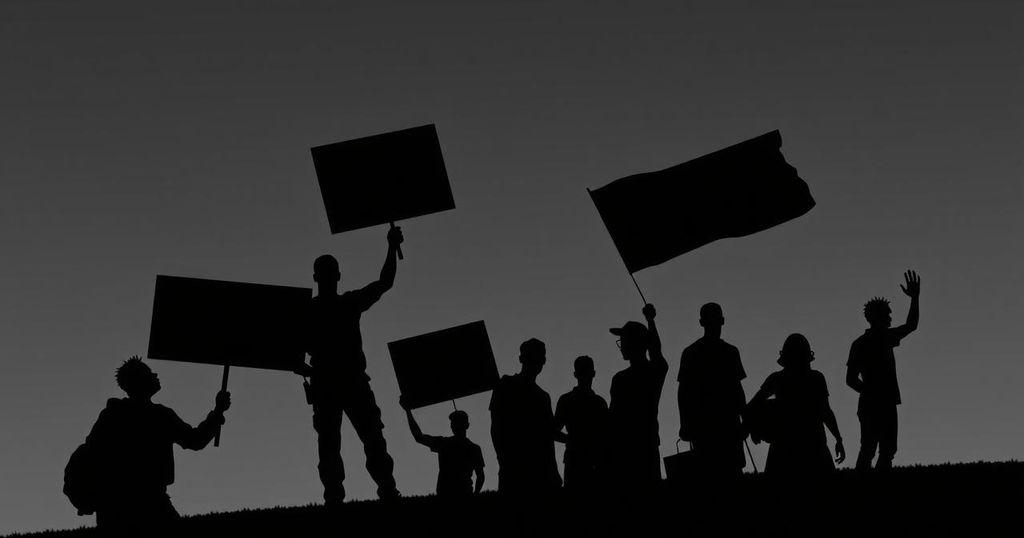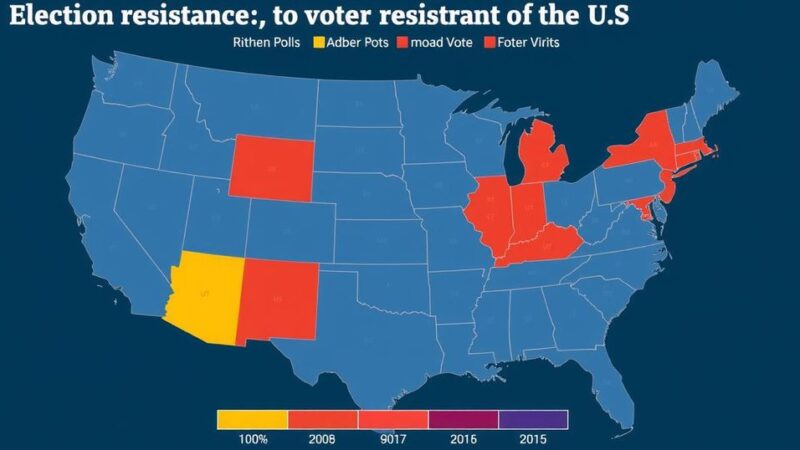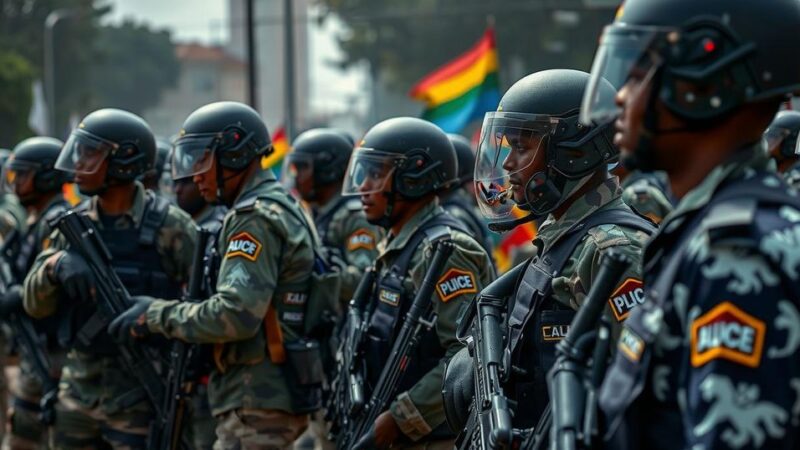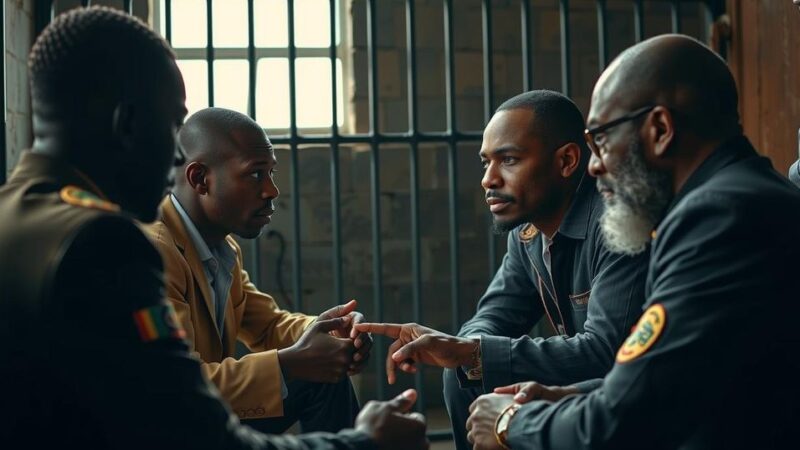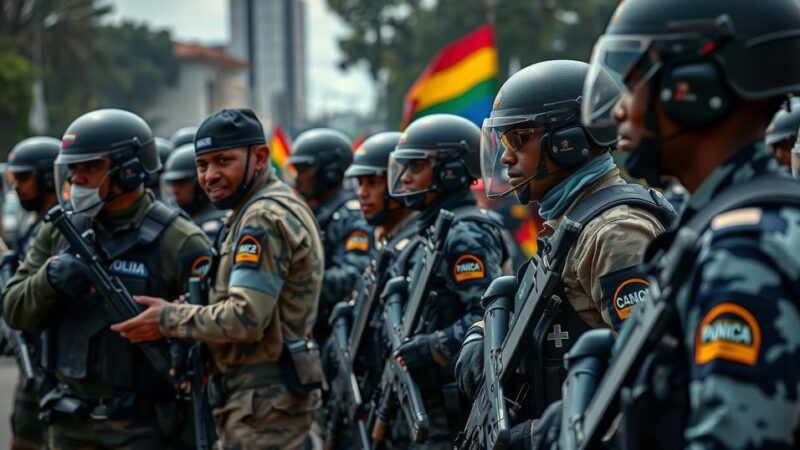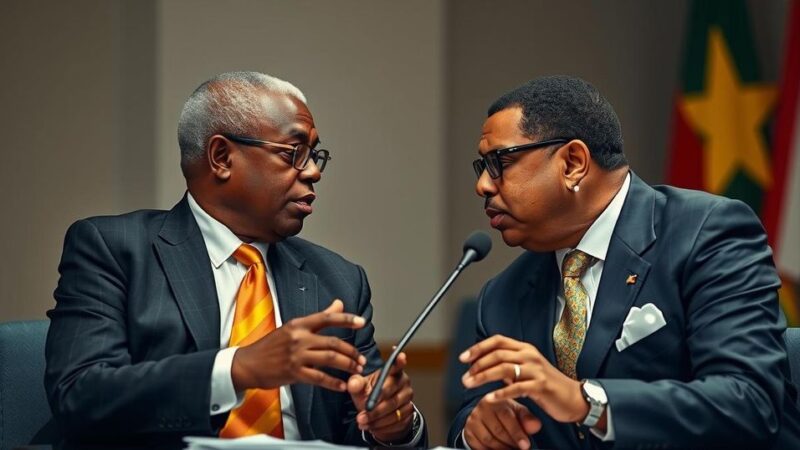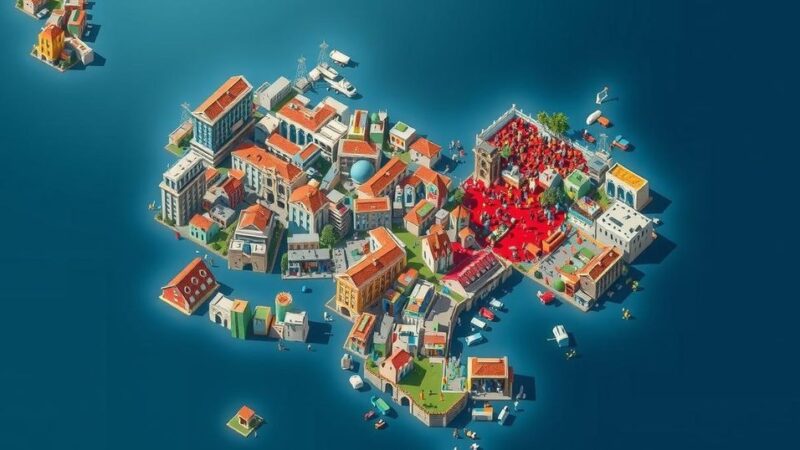In Kinshasa, Congo, protesters rallied on September 25, 2024, demanding the release of political prisoners, including three key opposition leaders. The demonstration highlighted political tensions under President Felix Tshisekedi’s administration, prompting concerns about human rights and governance in the nation. The leaders, arrested on charges viewed as politically motivated, reflect broader issues of dissent suppression within the country.
In the Democratic Republic of the Congo, a significant protest took place on September 25, 2024, in Kinshasa, where hundreds gathered outside the country’s highest court. The demonstrators demanded the immediate release of political prisoners, particularly three leading opposition figures: Jean-Marc Kabund, Mike Mukebayi, and Seth Kikuni, whose arrests are viewed by many as politically motivated. The protest is emblematic of the rising tensions surrounding President Felix Tshisekedi’s administration, which has faced accusations of seeking to suppress dissent and undermine the rule of law. Although Tshisekedi was reelected in December 2023, his victory has been shadowed by allegations of electoral malpractice. During the protests, participants displayed banners and chanted demands for the liberation of political prisoners, highlighting widespread discontent with the current political climate. Representatives from various opposition parties conveyed their grievances to the Minister of Justice, insisting that the imprisonment of political opponents undermines the fundamental principles of governance in a democratic state. Kabund and Mukebayi, who have been detained since last year, face severe accusations, including insulting the president and disseminating false information. Meanwhile, Kikuni was apprehended recently on similar charges and is currently held by the governmental intelligence services. The protests occurred against a backdrop of broader concerns regarding human rights practices in the Congo, as highlighted by Amnesty International, which reported on the country’s overcrowded prisons and recent violence, including a deadly attempted jailbreak. Moreover, the government’s recent bid for a seat on the UN Human Rights Council has drawn skepticism and condemnation from opposition groups and civil society organizations, which argue that Congo’s human rights record does not warrant such a position.
The Democratic Republic of the Congo has long been characterized by political instability and governance challenges, particularly regarding the treatment of opposition figures and human rights issues. Since Felix Tshisekedi was elected president in 2018, he has faced criticism for his administration’s approach to political dissent. The recent protests for the release of prominent opposition leaders underscore the country’s deep political divisions and the ongoing struggle for democratic accountability in the face of perceived authoritarianism. The overpopulation of prisons and instances of violence reinforce the urgent need for judicial reform and respect for human rights. This backdrop sets the stage for understanding the significance of the current protests and the opposition’s campaign for the release of political prisoners. Particularly highlighted are the cases of Jean-Marc Kabund and Mike Mukebayi, who were arrested under controversial circumstances, revealing broader apprehensions about freedom of speech and political expression in the Congo.
To summarize, the protests in Kinshasa reflect heightened political tensions within the Democratic Republic of the Congo as citizens demand the release of political prisoners, particularly those incarcerated for allegedly politically motivated reasons. President Tshisekedi’s government faces increasing scrutiny for its treatment of dissenters amidst a backdrop of recent electoral disputes and concerns over human rights abuses. The situation remains complex, with implications for the nation’s democracy moving forward.
Original Source: apnews.com
